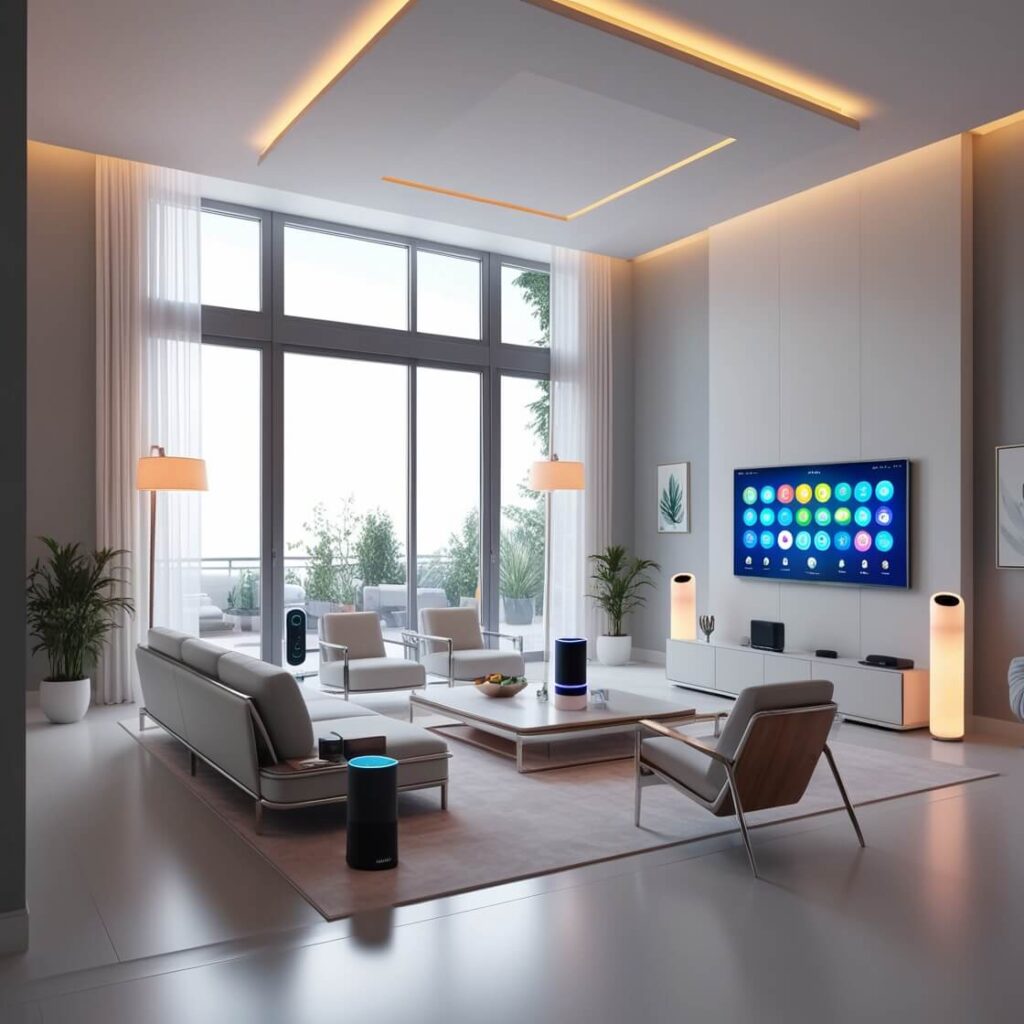The idea of transforming your home into a smart, connected space can be exciting. From controlling lights with a simple voice command to ensuring your home is secure even when you’re not there, smart home tech offers a wide range of benefits. However, before diving in and investing in smart home devices, it’s essential to take a step back and ask yourself a few key questions to ensure you’re making the right choice for your needs. Here are five important questions to ask before committing to smart home technology.

1. What are my specific goals for a smart home?
Before investing in smart home devices, it’s crucial to have a clear understanding of why you want to make your home smarter. Are you looking to improve security, enhance convenience, save energy, or all of the above? Having specific goals in mind will help guide your purchasing decisions and ensure that you choose the right technology for your needs.
For example, if security is your top priority, you might focus on smart doorbell cameras, smart locks, and security cameras. On the other hand, if energy efficiency is more important, a smart thermostat and energy-efficient smart lights may be more suitable.
Why It Matters: Identifying your goals ensures you focus on the most useful devices, helping you avoid unnecessary purchases that may not align with your priorities.
Related Post:
10-Step Smart Home Checklist: Your Ultimate Guide to a Fully Connected Home
2. Is my home compatible with smart home technology?
Not all homes are suited to the installation of smart home devices right out of the box. Some smart devices require specific infrastructure, like a stable Wi-Fi connection, smart outlets, or a central hub to manage everything. Before purchasing, it’s important to assess whether your home is ready for smart home upgrades.
For instance, if you live in an older home, you may need to upgrade your Wi-Fi system or electrical outlets to accommodate smart devices. Some devices, like smart thermostats or smart locks, may require professional installation depending on your home’s setup.
Why It Matters: Ensuring compatibility beforehand can save you from spending money on devices that may not work or require costly additional installations.
Related Post: 3 most Popular Smart Home Platform
3. How easy is it to integrate different devices?
As you begin adding smart devices to your home, it’s important to consider how well these devices will work together. Some devices are designed to work seamlessly within a specific ecosystem (e.g., Amazon Alexa, Google Home, or Apple HomeKit), while others may require third-party apps or software to function properly.
It’s helpful to ask whether you want a single ecosystem to control everything or if you’re willing to manage multiple apps. Choosing devices that work well together can make controlling your home much simpler and prevent the frustration of having to juggle too many platforms.
Why It Matters: Choosing a cohesive system makes the management of your smart home simpler and more streamlined, reducing the likelihood of compatibility issues.
Related Post : 4 Powerful Ways to Control All Your Smart Home Devices from One App

4. What is the total cost, including installation and ongoing expenses?
While the initial cost of purchasing smart home devices is a key consideration, it’s also essential to factor in installation costs (if necessary) and ongoing subscription fees for services like cloud storage, app subscriptions, or professional monitoring. For example, some smart cameras may require a monthly fee to access video footage or store recordings, while smart thermostats might offer free basic services but charge for advanced features.
Why It Matters: Understanding the total cost, including hidden fees, helps you avoid surprises and ensures that the smart home technology fits within your budget, both now and in the long term.
Related Post:
Smart Home Cost: 2025 Complete Guide to Turning Your Home Into a Smart Home
5. How secure is my smart home network?
Security is one of the top concerns when it comes to smart home technology. Smart devices are connected to the internet, which makes them vulnerable to potential hacks and breaches. Before investing in smart home tech, take the time to research how secure the devices are and whether additional security measures (like a VPN or a dedicated smart home network) are necessary.
Some devices offer encryption and two-factor authentication for added security, while others may require you to configure additional safeguards. Ensuring that your devices and network are secure can help protect your privacy and prevent unauthorized access.
Why It Matters: Prioritizing security safeguards your personal information and prevents the potential for cyberattacks or unauthorized access to your smart home devices.
Related Post: Best Virtual Private Network (VPN) You Should Invest in 2025

Conclusion
Smart home technology offers a wide range of benefits, but it’s important to approach the investment thoughtfully. By asking these five questions, you can ensure that your smart home journey is well-planned and that the devices you choose will meet your needs, fit your home, and work together seamlessly. Whether you’re focused on improving security, saving energy, or simply adding convenience, taking the time to assess your goals and potential costs will ensure that your smart home investment is a success.



